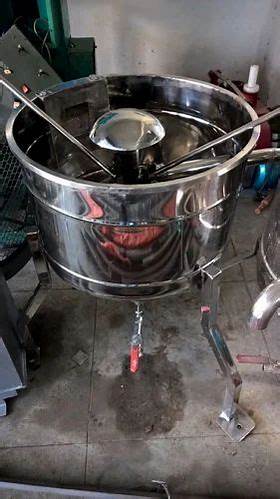Breaking Down Barriers: Overcoming Challenges with Metal Powder Sieving Machines

In the realm of industrial manufacturing, efficiency and precision are paramount. Nowhere is this more evident than in the processing of metal powders, where even the smallest impurities can compromise the quality of the final product. To ensure the purity and consistency of metal powders, manufacturers rely on metal powder sieving machines. These machines play a crucial role in separating particles of varying sizes, but they also encounter their fair share of challenges along the way.
The Importance of Metal Powder Sieving
Before delving into the challenges, it’s essential to understand why metal powder sieving is so vital. Metal powders are the building blocks of countless products, from automotive parts to aerospace components. The quality of these powders directly impacts the performance and durability of the finished goods. Therefore, any impurities or irregularities must be eliminated during the manufacturing process.
Metal powder sieving machines metal powder sieving machine as the frontline defense against contamination. By passing the powder through a series of screens with different mesh sizes, these machines efficiently separate particles based on their dimensions. This process ensures that only particles of the desired size range make it through, resulting in a high-quality powder ready for further processing.
Challenges Faced by Metal Powder Sieving Machines
Despite their critical role, metal powder sieving machines encounter several challenges that can hinder their performance and efficiency.
- Particle Agglomeration: Metal powders often exhibit a tendency to clump together, forming agglomerates that are difficult to break apart. These agglomerates can clog the sieves, leading to uneven sieving and potentially damaging the machine.
- Fine Particle Handling: Some metal powders consist of extremely fine particles that pose a challenge for traditional sieving methods. These particles can easily pass through the mesh screens or become airborne, resulting in product loss and potential health hazards for workers.
- Screen Wear and Tear: The constant abrasion caused by the metal powders can cause wear and tear on the sieve screens over time. As the screens degrade, their effectiveness diminishes, leading to decreased sieving efficiency and increased maintenance costs.
- Static Electricity: Metal powders are often prone to static electricity buildup, which can cause particles to cling to the sieve screens or other surfaces within the machine. This buildup not only impedes the sieving process but can also create safety hazards in the form of sparks.
Overcoming Challenges with Innovative Solutions
Despite these challenges, manufacturers have developed innovative solutions to enhance the performance and reliability of metal powder sieving machines.
- Agglomeration Prevention Techniques: To prevent particle agglomeration, manufacturers utilize techniques such as ultrasonic vibration and mechanical agitation within the sieving machine. These methods help break apart clumps and ensure a more uniform distribution of particles across the sieve screens.
- Advanced Sieving Technologies: Recent advancements in sieving technology have led to the development of machines specifically designed to handle fine metal powders. These machines utilize finer mesh screens and incorporate features such as pneumatic sieving to minimize product loss and ensure precise particle separation.
- Durable Screen Materials: To combat wear and tear, manufacturers are turning to more durable screen materials such as stainless steel and specialty alloys. These materials offer superior resistance to abrasion and corrosion, prolonging the lifespan of the sieve screens and reducing maintenance requirements.
- Static Control Measures: To mitigate static electricity issues, metal powder sieving machines are equipped with anti-static features such as ionizers and grounding mechanisms. These measures help dissipate static charges and prevent particles from clinging to surfaces, ensuring smooth sieving operations.
Conclusion
Metal powder sieving machines play a crucial role in ensuring the quality and purity of metal powders used in various industries. While they face challenges such as particle agglomeration, fine particle handling, screen wear, and static electricity, innovative solutions continue to emerge to overcome these obstacles. By embracing advanced technologies and implementing effective mitigation strategies, manufacturers can enhance the efficiency and reliability of metal powder sieving processes, ultimately leading to higher-quality end products.
Share this post:
In the realm of industrial manufacturing, efficiency and precision are paramount. Nowhere is this more evident than in the processing of metal powders, where even the smallest impurities can compromise the quality of the final product. To ensure the purity and consistency of metal powders, manufacturers rely on metal powder sieving machines. These machines play…